Michigan is known for having a lot of agate deposits, even though they are often scattered and hard to find if you don’t know where to be looking. Most of the time, you can find agates in gravel pits, beaches, and riverbeds.
However, they are small and look like other rocks, so they can be challenging to spot. If you don’t know enough about geology, the places where agates are most likely to be found, and how to identify them around the state, you could spend hours looking for them and not find any.
Lucky for aspiring agate hunters in Michigan, there are a lot of resources that could help you! Anyone with the right guidance and patience can have a fun adventure and find some of the state’s hidden beauty.
What is Michigan Agate?
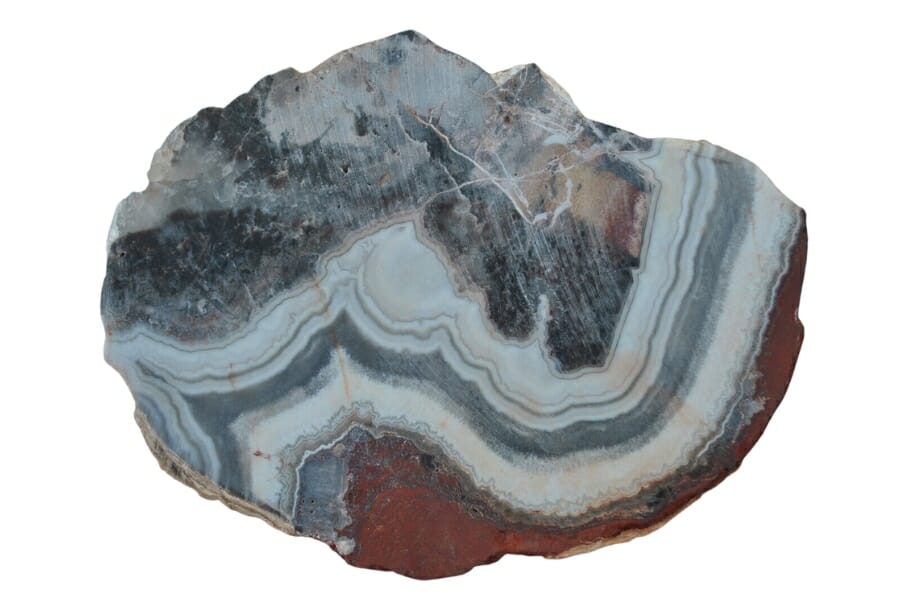
There are a lot of different and valuable Michigan rocks but agates are among the most beautiful and they come in many different colors and patterns. Because of how they are banded and transparent, collectors and enthusiasts love to find them.
Agates get their patterns from how minerals settle into holes in volcanic rock or other host rocks. This happens over a long time, sometimes millions of years, as water with dissolved minerals seep into the cavities and slowly crystallizes, layer by layer.
If you want to know how much agates are worth, use our article as a guide.
Blue Lace Agate
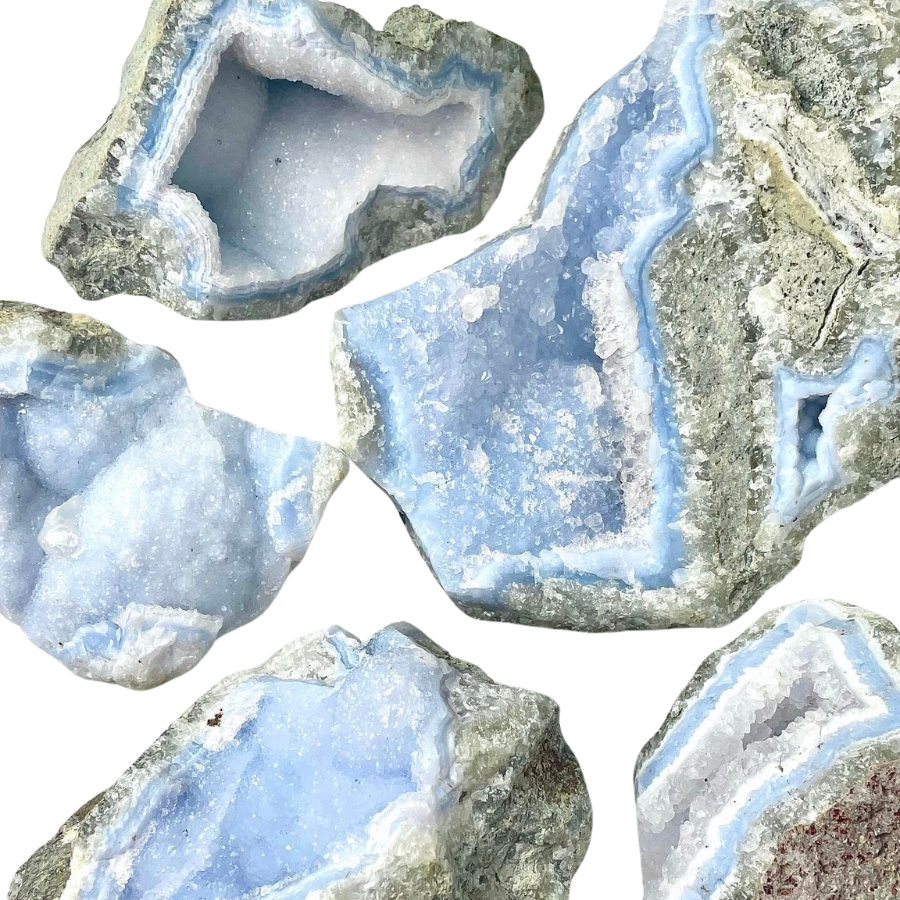
Blue lace agate is like the soft, sky-blue waves with lines that swirl and twist like delicate lace.
Its pattern comes from slow-forming layers of quartz, which create those beautiful, lace-like bands.
The bands of this agate type are often in shades of light blue, white, and sometimes a bit of grey. It’s different from other agates, which usually have more intense colors and stronger patterns.
The value of blue lace agate lies in its soft, tranquil look and the feeling of calm it brings. It’s often used in jewelry or as a decorative stone.
If you want REAL results finding incredible rocks and minerals you need one of these 👇👇👇
Finding the coolest rocks in isn’t luck, it's knowing what to look for. Thousands of your fellow rock hunters are already carrying Rock Chasing field guides. Maybe it's time you joined the community.
Lightweight, mud-proof, and packed with clear photos, it’s become the go-to tool for anyone interested discovering what’s hidden under our red dirt and what they've already found.
Join them, and make your next rockhounding trip actually pay off.
What makes it different:
- 📍 Find and identify 140 incredible crystals, rocks, gemstones, minerals, and geodes across the USA
- 🚙 Field-tested across America's rivers, ranchlands, mountains, and roadcuts
- 📘 Heavy duty laminated pages resist dust, sweat, and water
- 🧠 Zero fluff — just clear visuals and straight-to-the-point info
- ⭐ Rated 4.8★ by real collectors who actually use it in the field
Moss Agate
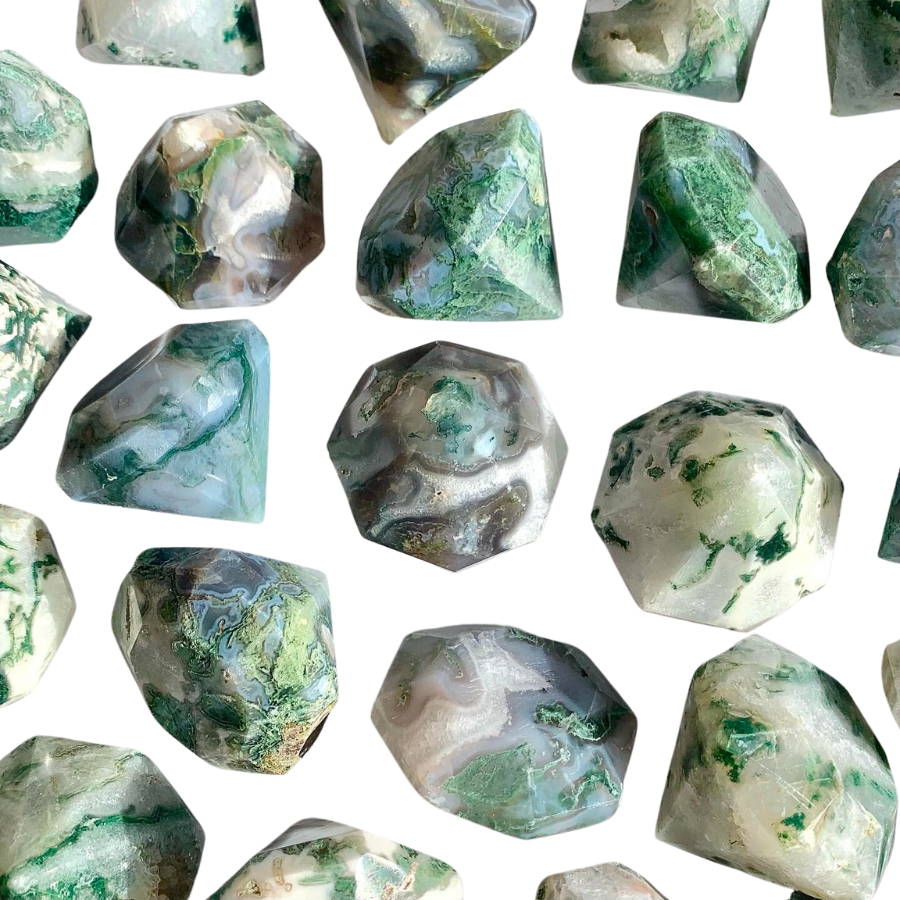
Instead of having the typical banding for which the different types of agates are known, moss agate has green inclusions that look like moss or trees.
These green patterns aren’t real plant material, though. They’re minerals like chlorite or iron oxide.
In some cultures, this type of agate is known as the “gardener’s stone” because of its green, plant-like appearance. It’s believed to help plants grow.
The price of moss agate can vary. It’s often quite affordable, but the more distinct and picturesque the green patterns, the more it might cost.
Fire Agate
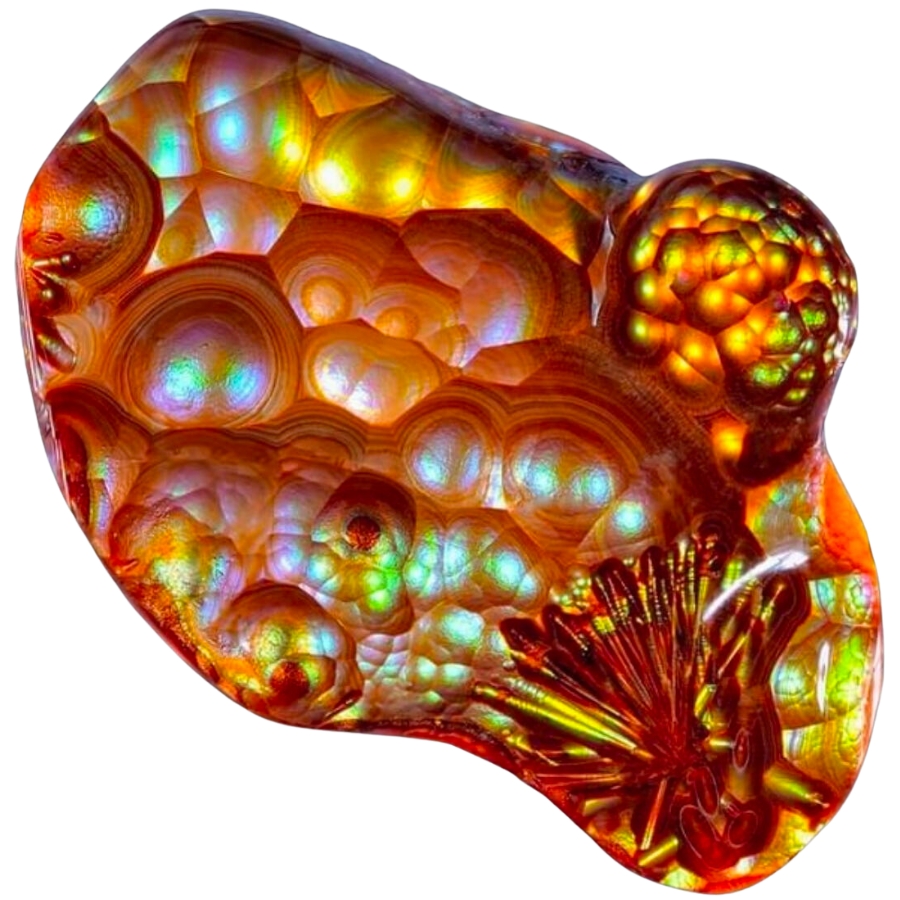
Fire agate is known for its incredible colors and the way it sparkles like fire. It’s got layers of silica and iron oxide that reflect light, creating a fiery effect.
When you look at fire agate, it’s like seeing flames trapped inside. Its colors can range from reds and oranges to greens and golds, all shimmering under the surface.
You might be wondering, “What is fire agate worth?” Well, its value comes from its rare beauty. The more color and sparkle, the more valuable the stone is.
Its fiery iridescence and lively play of color are used in jewelry pieces that are meant to stand out.
Dendritic Agate
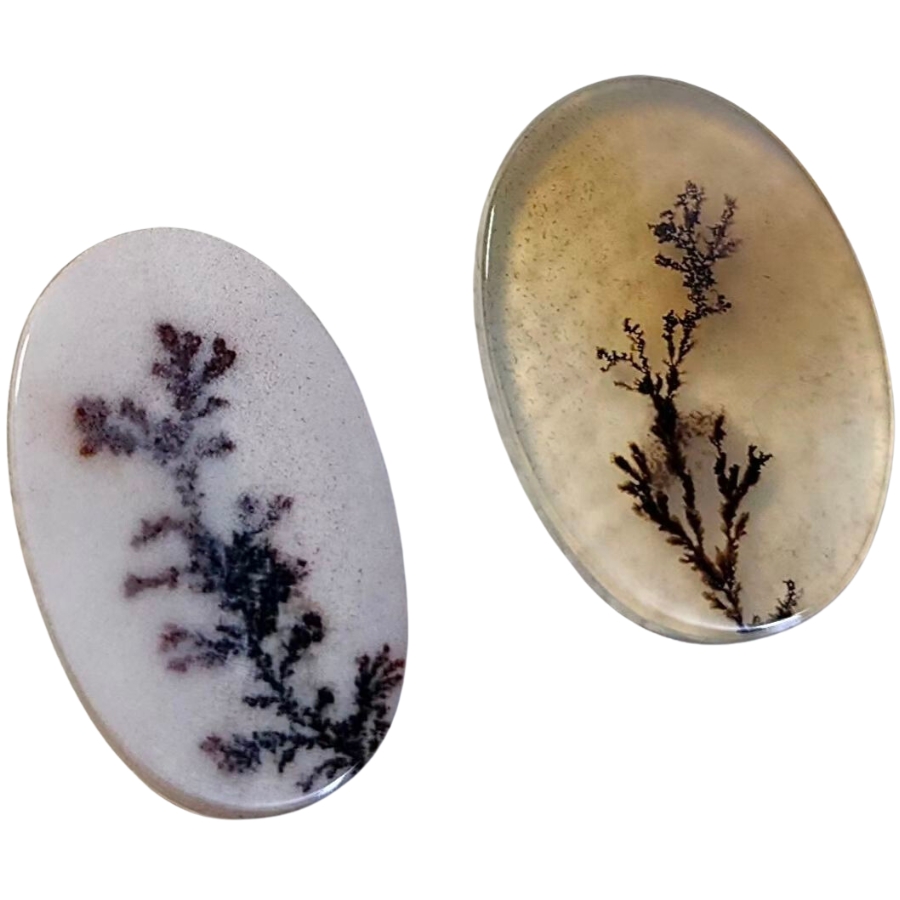
Dendritic agate is known for patterns that look like tiny trees or shrubs. Like moss agate, these patterns aren’t actual plants. They’re made of minerals, mostly manganese or iron oxides.
When you look at a dendritic agate, it’s like peering into a miniature forest or a frosty winter landscape.
The base of the stone is usually translucent to opaque, and the “dendrites”— those tree-like patterns— are often black or brown.
When it comes to how much dendritic agate is worth, it can vary. The more detailed and distinct the patterns are, the more it’s usually valued.
In some cultures, dendritic agate is believed to bring fullness and richness to life.
Crazy Lace Agate
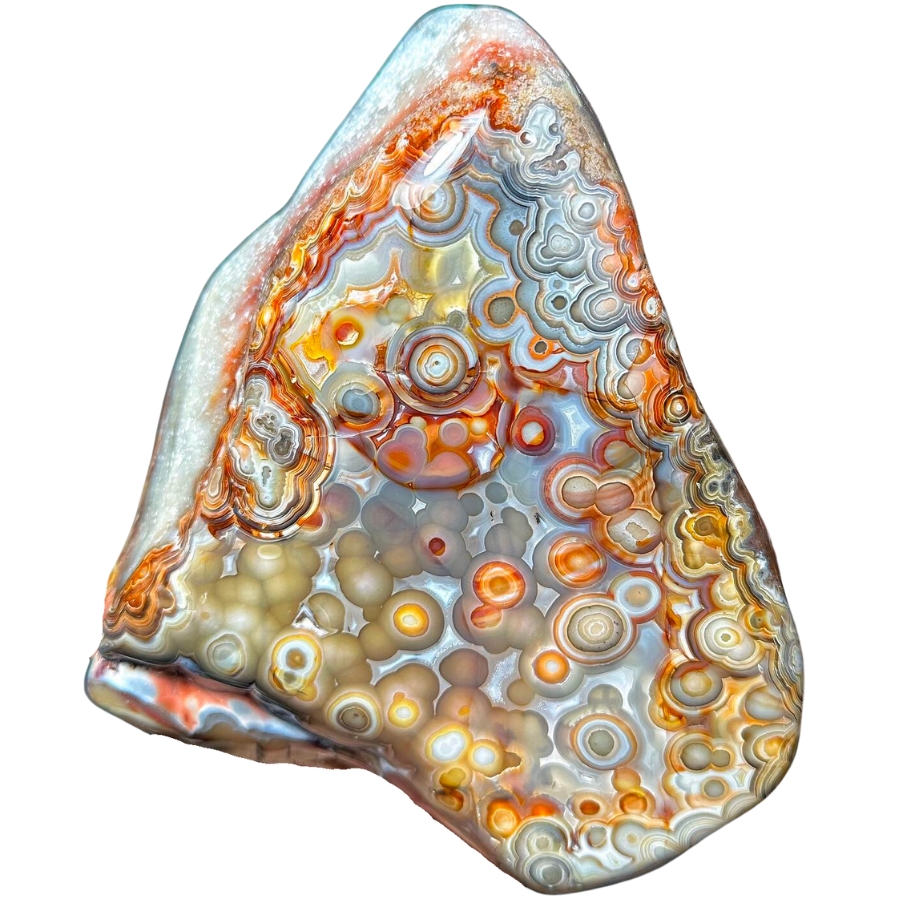
Crazy lace agate is like a party in a rock! It’s got swirls, circles, and all sorts of wild patterns dancing across it.
Its colors can be a mix of red, orange, yellow, and brown, and sometimes even a bit of gray or white.
What makes crazy lace agate stand out is its vibrant and complex patterns. No two pieces are the same. This distinctiveness is a big reason why it’s so valued.
Despite its wild and ‘crazy’ appearance, it’s sometimes called the “Laughter Stone” or “Happy Lace” because of the joy and positive vibes it’s believed to bring.
Laguna Agate
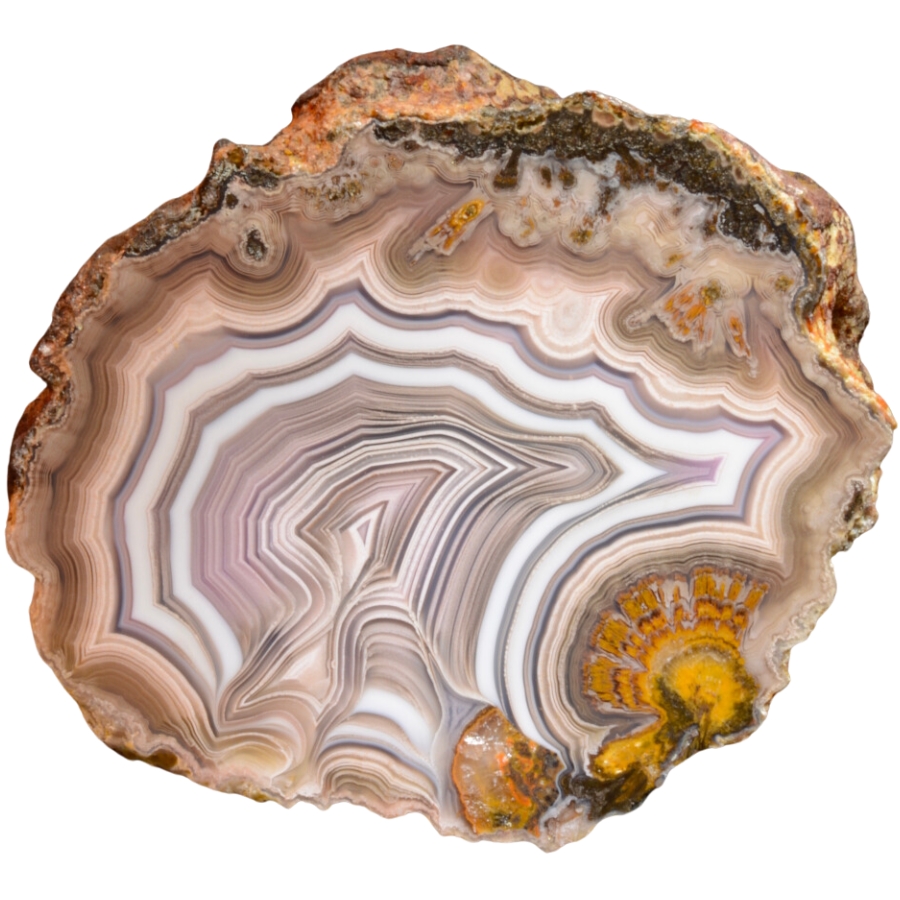
Laguna agate has incredibly sharp and fine banding. It has layers of red, orange, pink, yellow, and sometimes even purple and white all stacked in neat, tight bands.
These bands can form eye-catching patterns, like swirls, loops, and even landscapes.
The different colors of its bands come from various minerals present in the water at the time of its formation.
Laguna agate is considered one of the finest agates in the world due to its exceptional banding. This high regard among agate varieties makes it a prized possession for collectors.
Condor Agate
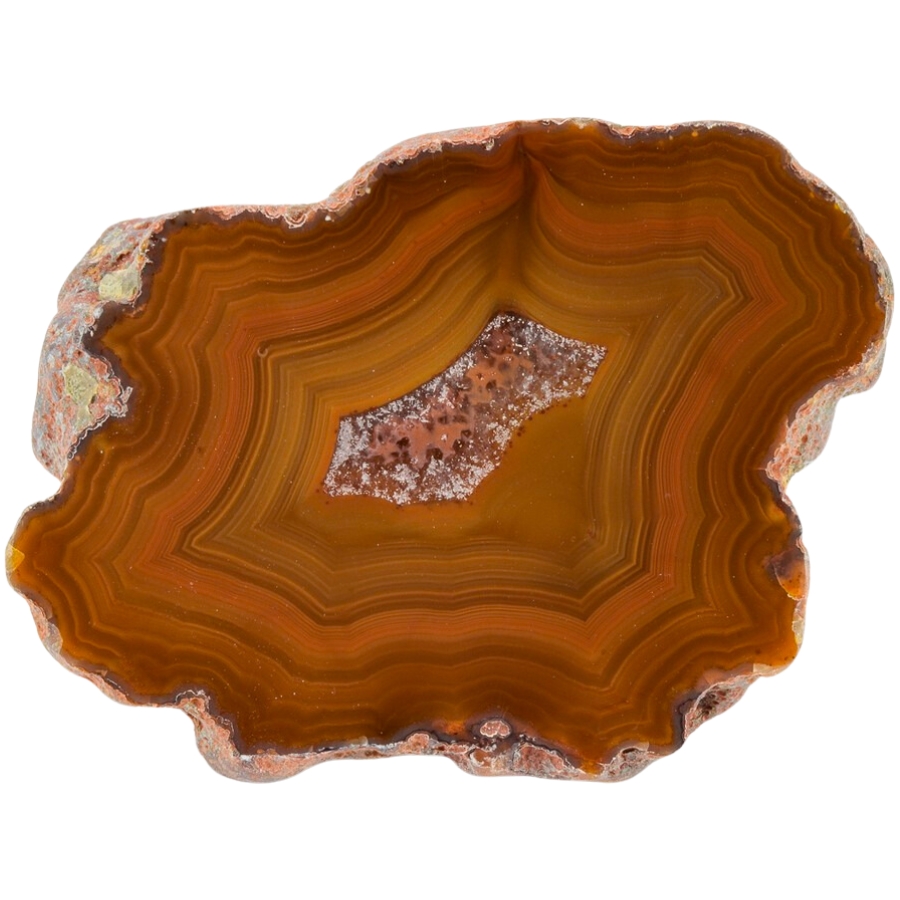
Condor agate is a real standout. It’s known for its bright, vivid colors and complex patterns.
It has reds, oranges, yellows, and sometimes even blues and greens all swirling together. These colors form in bands or in more random, artistic patterns.
The intensity and variety of its colors is what makes condor agate so special. It’s often used by artists and craftsmen who want to make a statement with their work.
Condor agate’s bold colors and patterns can turn a simple piece of jewelry or art into something really eye-catching.
Fortification Agate (Banded Agate)
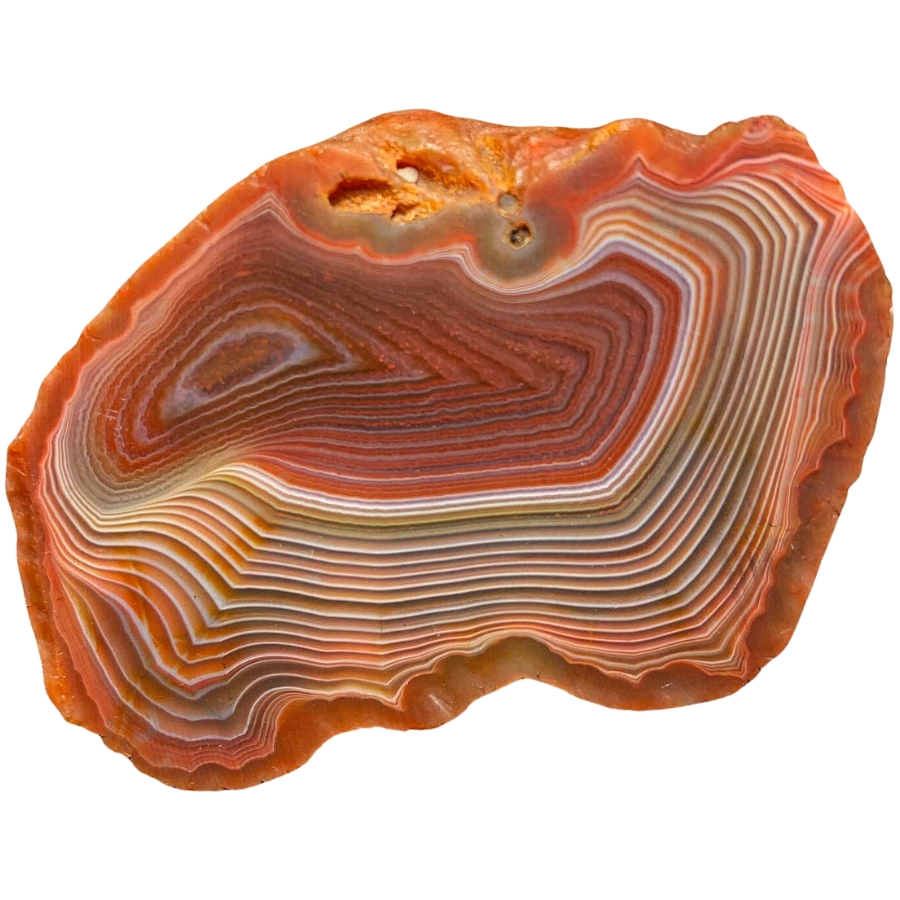
Fortification agate gets its name because the patterns inside it look like the aerial view of a fortified city.
Imagine seeing bands of color forming shapes that look like walls, with sharp angles and curves. They are usually in different colors, making each layer stand out.
If fortification agate is valuable, it’s because of its distinct patterns and colors. Its unique look makes it sought after for jewelry and as a collector’s item.
The clearer and more defined the patterns, the more valuable the stone can be. Some people also believe it can help with relaxation and calmness.
Iris Agate
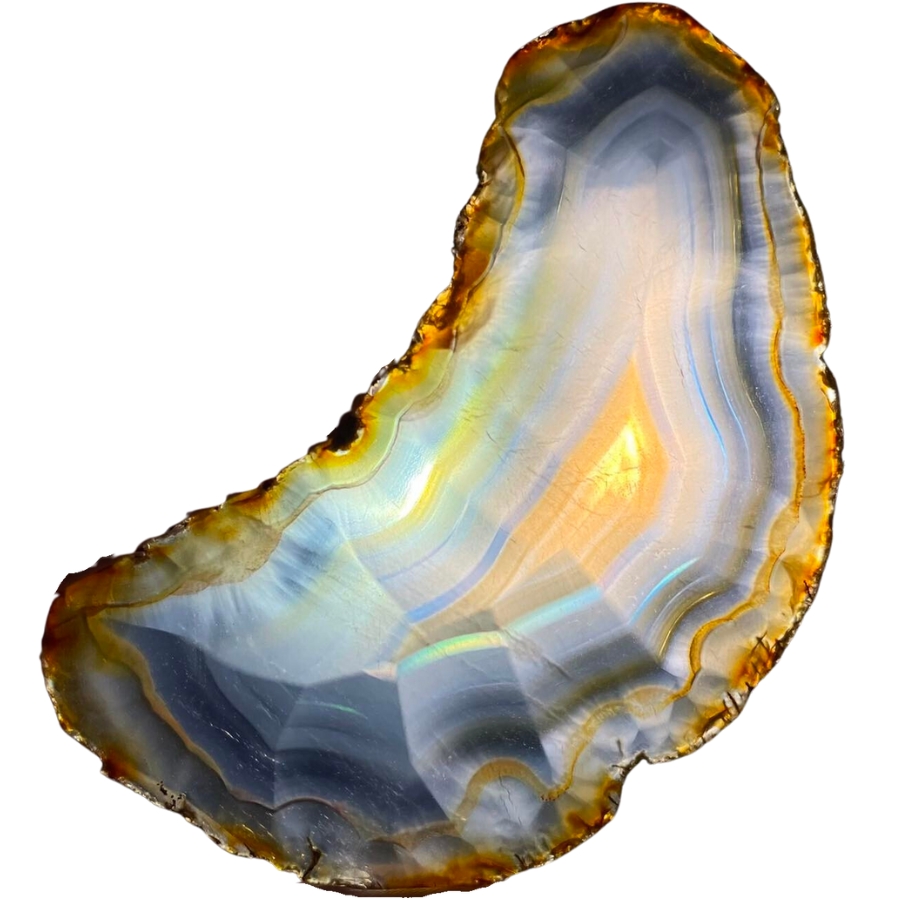
Iris agate looks like a regular agate at first, but when you hold it up to the light, something amazing happens. It shows all these rainbow colors, like light passing through a prism.
This is because it has very thin layers of silica, and when light hits these layers, it splits into all the colors of the rainbow.
The formation of iris agate is similar to other agates, but its layers are super thin, which is what creates the rainbow effect.
The value of iris agate comes from its unique ability to show these colors. In the past, people even used to think it had magical properties because of the way it showed colors. They saw it as a stone of good luck and wonder.
Plume Agate
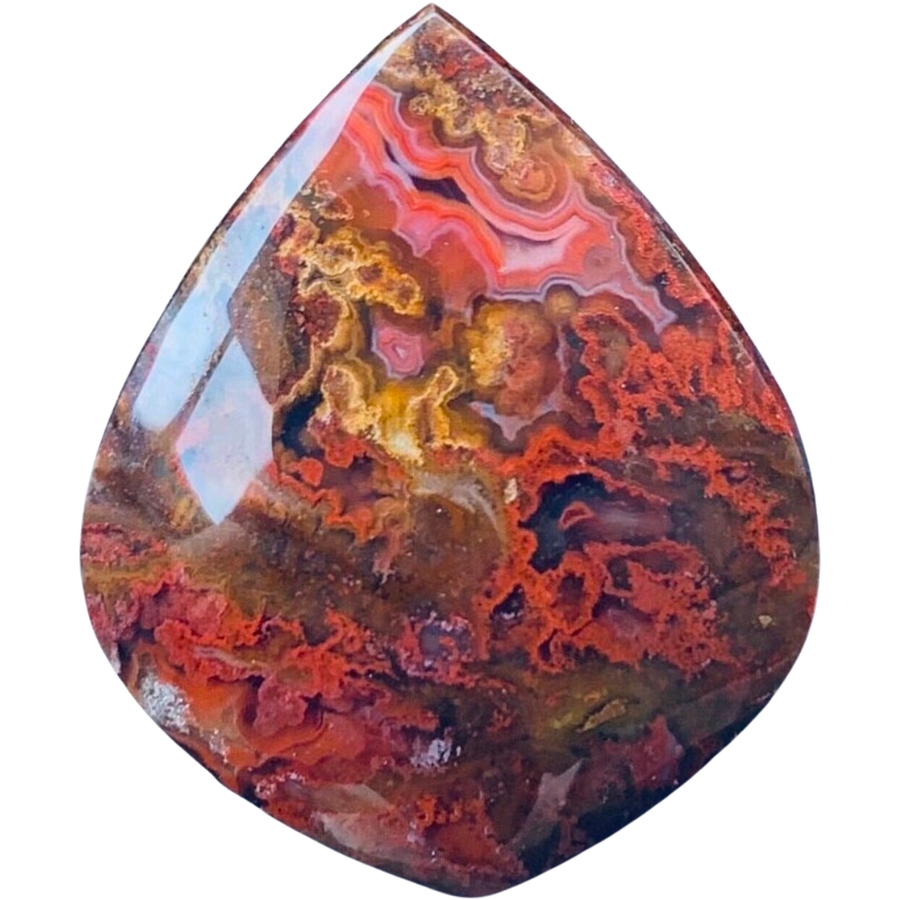
Plume agate gets its name from its patterns that look like soft, feathery plumes. These plumes can be in all sorts of colors: red, black, green, or yellow, set against a translucent or opaque background.
The way these plumes seem to float in the stone makes it look like a frozen underwater scene or like feathers caught in a breeze.
The plumes are made of minerals like manganese or iron oxide, which get trapped in the silica during the agate’s formation and create the feathery patterns.
The price of plume agate can vary depending on how clear and intricate the patterns are. The more detailed and colorful the plumes, the more the stone is usually worth.
Picture Agate (Scenic Agate)
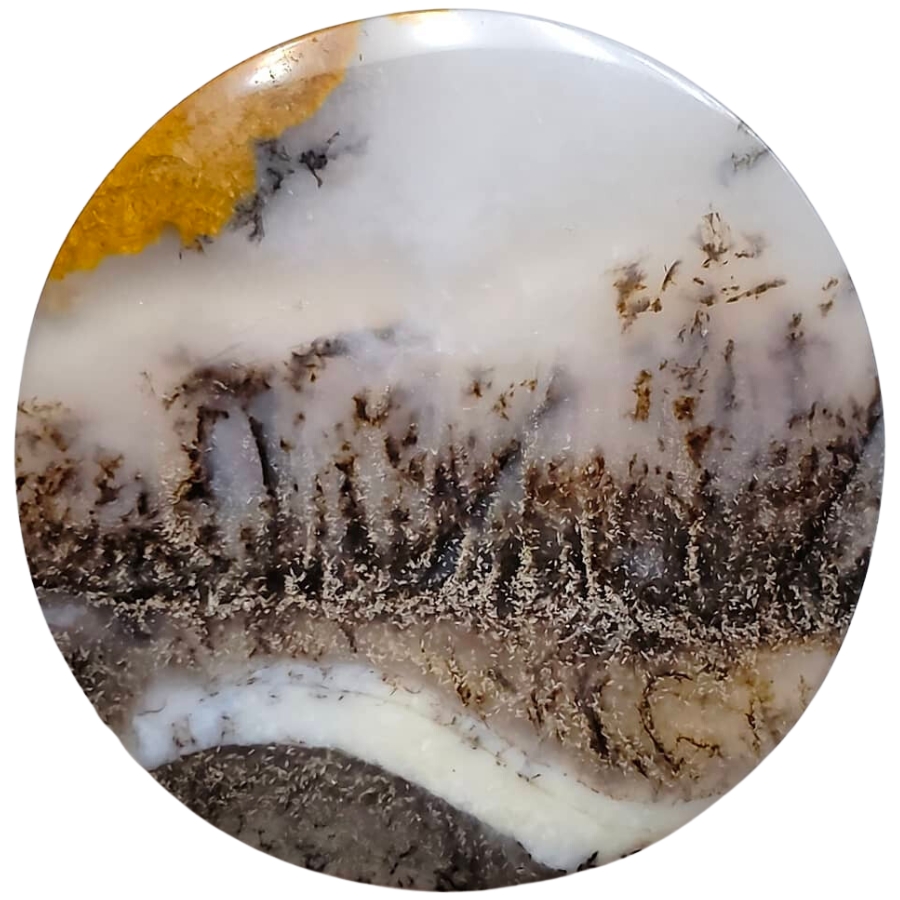
Picture agate is like a snapshot of nature captured in stone because it looks like it has pictures or scenes right inside it.
These “pictures” are actually natural patterns that resemble landscapes, mountains, trees, or even skies. They are usually in different shades of brown, white, and gray against a more translucent background.
The different patterns in picture agate or what’s also called scenic agate are made by various minerals in the water filled with silica that forms it.
If you’re thinking, “What is picture agate worth?“, its value comes from how distinct, clear, and detailed the natural “pictures” are.
Turritella Agate
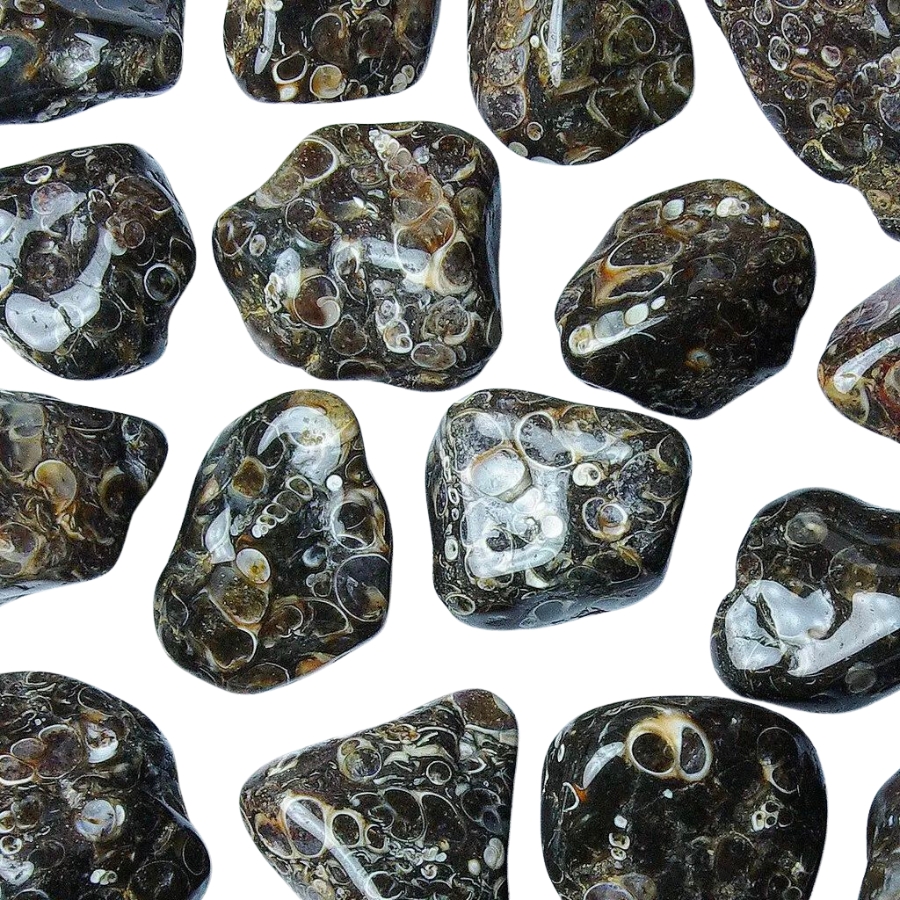
Turritella agate is not your typical agate because it’s full of fossilized snail shells! The shells belong to a creature called Turritella, a type of sea snail.
These shells are tightly packed and create a pattern that looks like a bunch of tiny, swirling towers. The background of the agate is usually a dark, earthy color, which makes the white or cream-colored snail shells really pop.
Over millions of years, these snail shells got buried in sediment and eventually became fossilized. As time went on, silica-rich water flowed through the sediment, turning it into the agate we see today.
The value of turritella agate comes from its unique blend of geology and history. More than a pretty stone, it’s a piece of ancient life preserved in rock.
Fairburn Agate
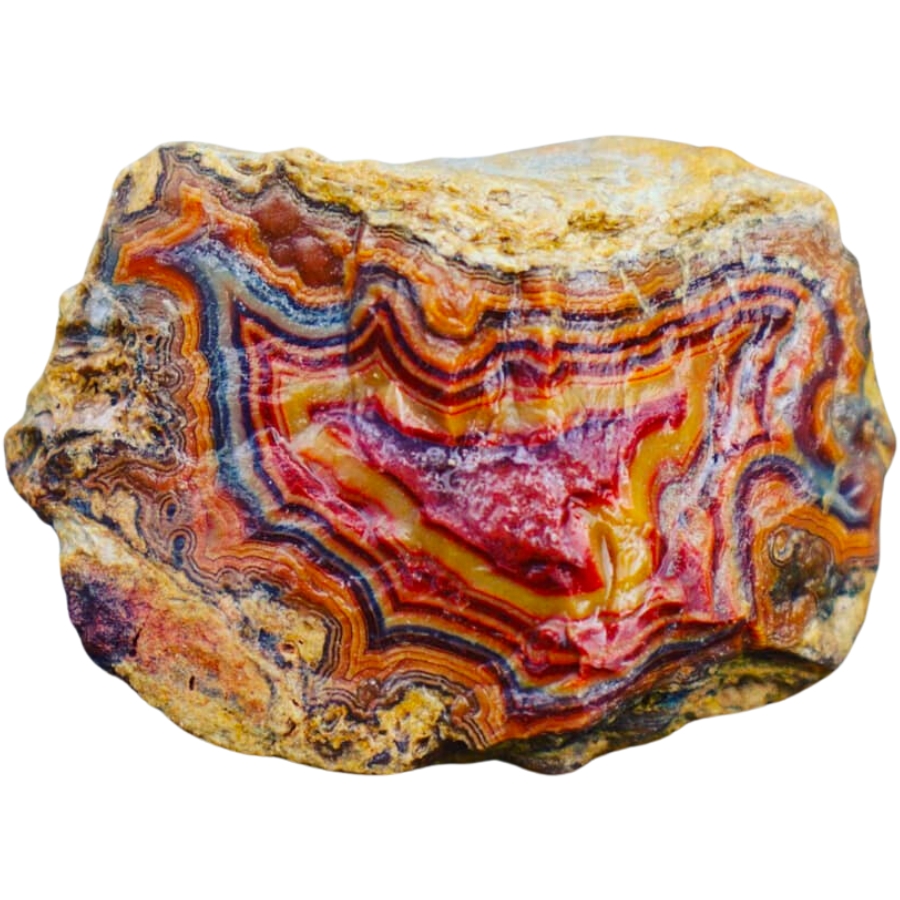
Known for its intricate patterns and bold colors, Fairburn agate is another fascinating type of agate. It usually has bands and swirls of different colors like red, yellow, orange, brown, and sometimes even pink or purple.
What’s special about these patterns is they often look like they’re in layers, creating a 3D effect. It’s like looking at a landscape made of stone.
It’s named after a place called Fairburn in South Dakota. This gives a clue about where it was first discovered.
People value Fairburn agate for the skill it takes to cut and polish it, which makes the patterns and colors really stand out.
Sagenite Agate
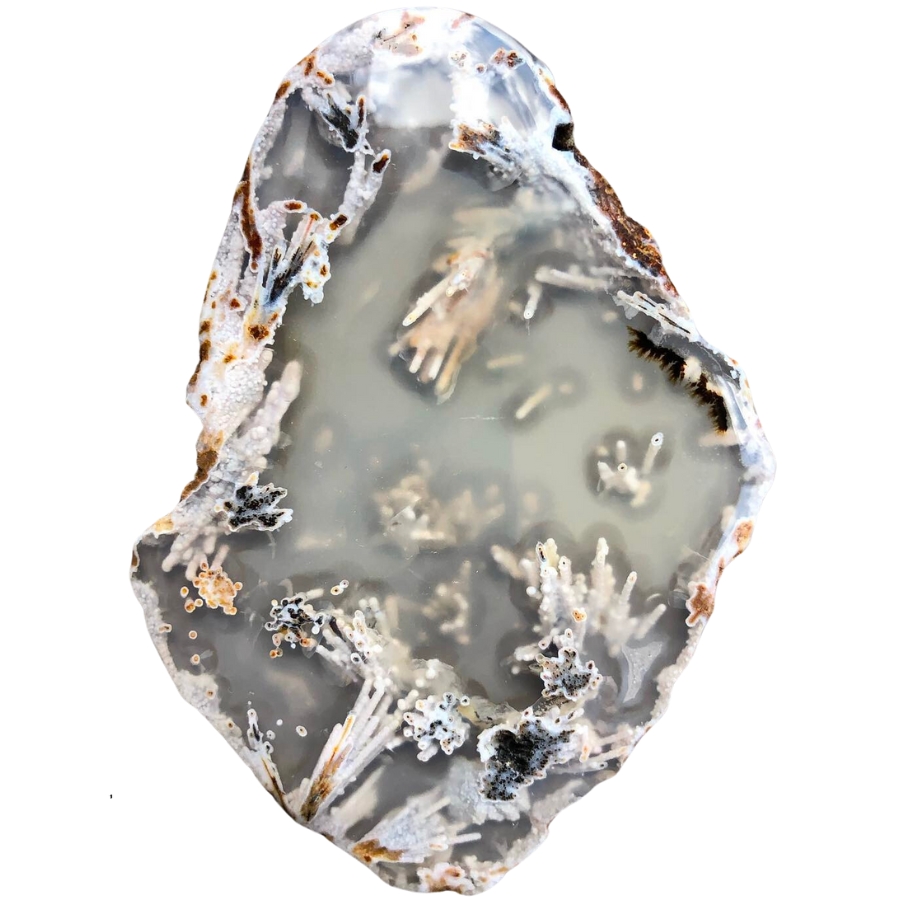
Sagenite agate has needle-like inclusions that look like tiny sprays of crystals inside it. They can be gold, silver, black, or even green, and they spread out in all directions, creating an amazing pattern.
The base of the agate is usually translucent, which lets you see these intricate needle patterns clearly.
These patterns are actually other minerals, like rutile or goethite, that get trapped inside the forming agate. These minerals grow in a crystal shape, looking like needles or hair.
Sagenite agate is often used in jewelry and other decorative items, with some people thinking that its needle patterns look like fireworks or starbursts.
Tree Agate
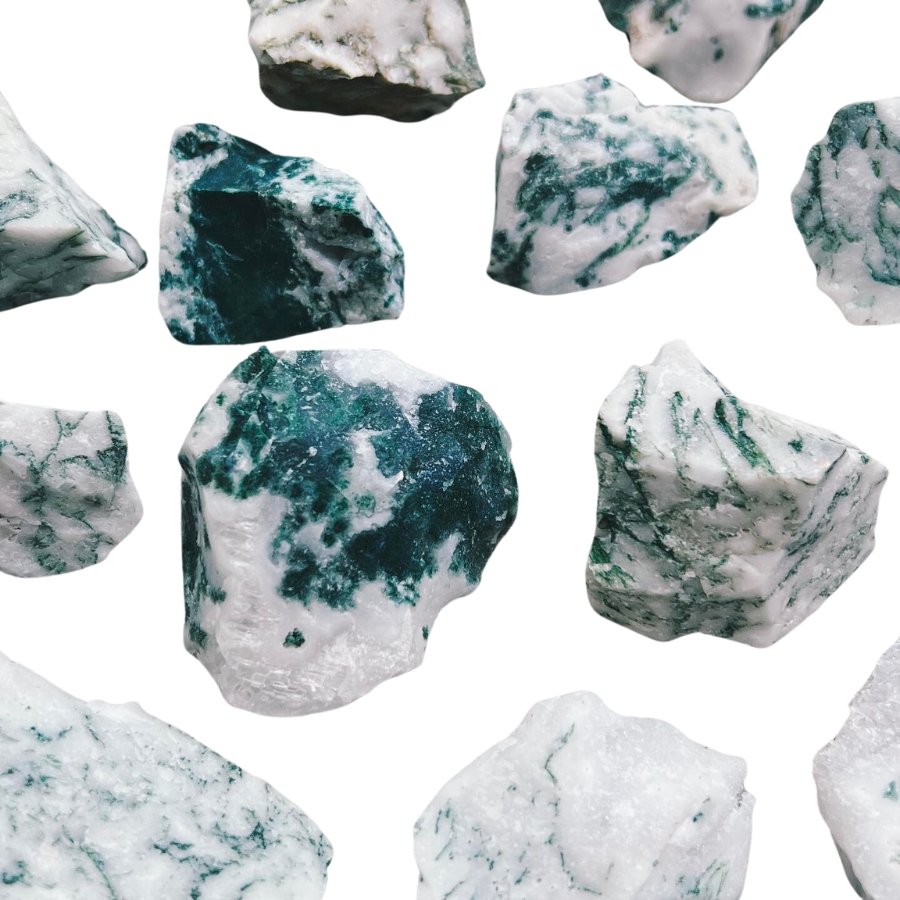
Tree agate, as its name suggests, looks like it’s got tiny trees or branches inside it. These tree-like patterns are usually green and spread out against a white or light gray background.
The green patterns aren’t actual trees, though. They’re made of minerals like chlorite or manganese.
Each piece of tree agate is different. You won’t find two that are exactly the same. It’s valued for its looks and it’s often used in jewelry and decorations.
The key factors in our recommendations are:
- The deep experience and understanding of our team about the area
- Recommendations from local groups and clubs
- How easy it is to get the a particular location
- Safety and potential hazards when collecting
- Weighing private and public locations
- The ability for both experienced and novice agate enthusiasts to find great samples
With these factors in mind we’ve been able to put together a fantastic list that just about anyone can use!
Kids. Beginners. Pros. Doesn’t matter. This book has become the go-to because it works for everyone.
Magy put it bluntly: “Identify rocks, crystals and minerals is so easy now!”
That’s not by accident, the photos are crisp, the callouts are simple, and the design is rugged enough to throw in a backpack without worrying. Whether it’s your first geode or your hundredth, this guide keeps the fun part simple: finding more treasures.
The Best Spots To Find Agates in Michigan
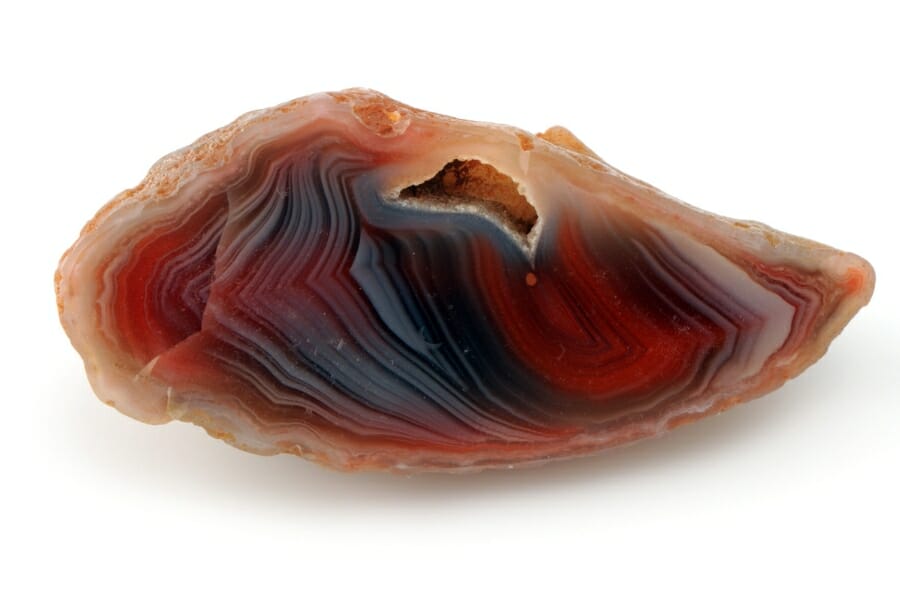
Here are our suggestions for where to look for agates in the state. Even though there are many great places to look for gems in Michigan, not all can contain agates.
Always Confirm Access and Collection Rules!
Before heading out to any of the locations on our list you need to confirm access requirements and collection rules for both public and private locations directly with the location. We haven’t personally verified every location and the access requirements and collection rules often change without notice.
Many of the locations we mention will not allow collecting but are still great places for those who love to find beautiful rocks and minerals in the wild without keeping them. We also can’t guarantee you will find anything in these locations since they are constantly changing.
Always get updated information directly from the source ahead of time to ensure responsible rockhounding. If you want even more current options it’s always a good idea to contact local rock and mineral clubs and groups
Brockway Mountain
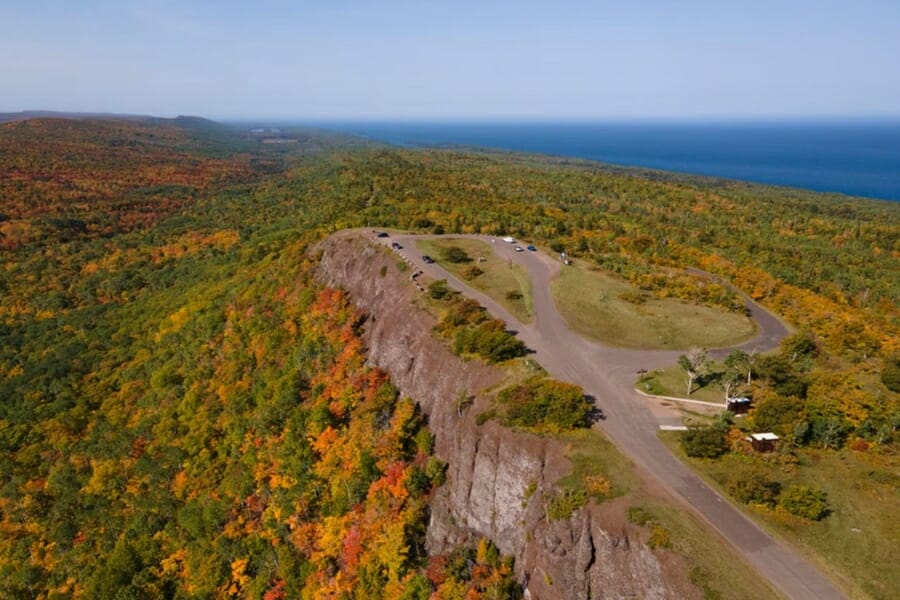
As it rises 735 feet above Lake Superior, Brockway Mountain gives you a breathtaking view of the area, including the vast lake and the dense forests that go all the way to the horizon. The geological features of the mountain have made it a popular place for people who like to look for agates.
The unique geology of the mountain makes it an excellent place for agates to be produced. It’s made up of Keweenaw basalt, an old volcanic rock. The activity of volcanoes and the cooling and hardening of lava flows in this area made holes and cracks where agates could grow.
Know the most up-to-date rules about collecting in Michigan before you bring your agate crystals home.
Where we found agates in Brockway Mountain
Most agates are found in the gravel pits spread throughout the area. The mining operations that made these gravel pits also exposed basalt layers, making them great places to look for agates.
Grand Sable Dunes
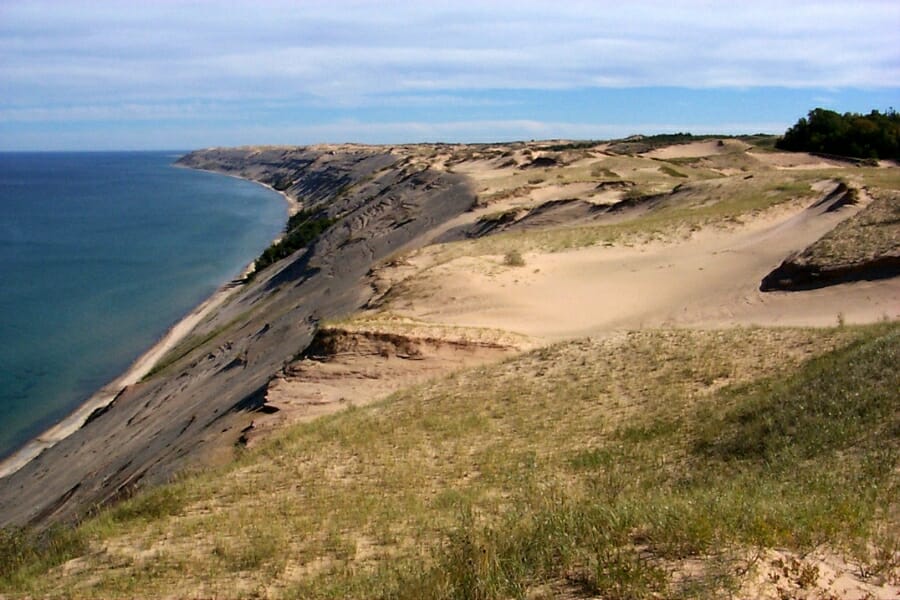
Grand Sable Dunes is a remarkable natural wonder renowned for its towering dunes and pristine shoreline. The dunes in Grand Sable are primarily composed of sandstone and limestone, with glacial deposits mixed in.
This majestic landscape also offers a good location for agate hunting. The unique combination of geological features and the erosive forces of wind and water make it an excellent spot to search for agates.
Where we found agates in the Grand Sable Dunes
Agate hunters visiting Grand Sable Dunes are encouraged to explore the sandy beach areas, particularly after storms or high wave activity, as these conditions can uncover fresh agate deposits.
Walking along the shore and scanning the sand for agates, which are often smooth and polished by the action of water, can yield exciting discoveries.
Isle Royale National Park
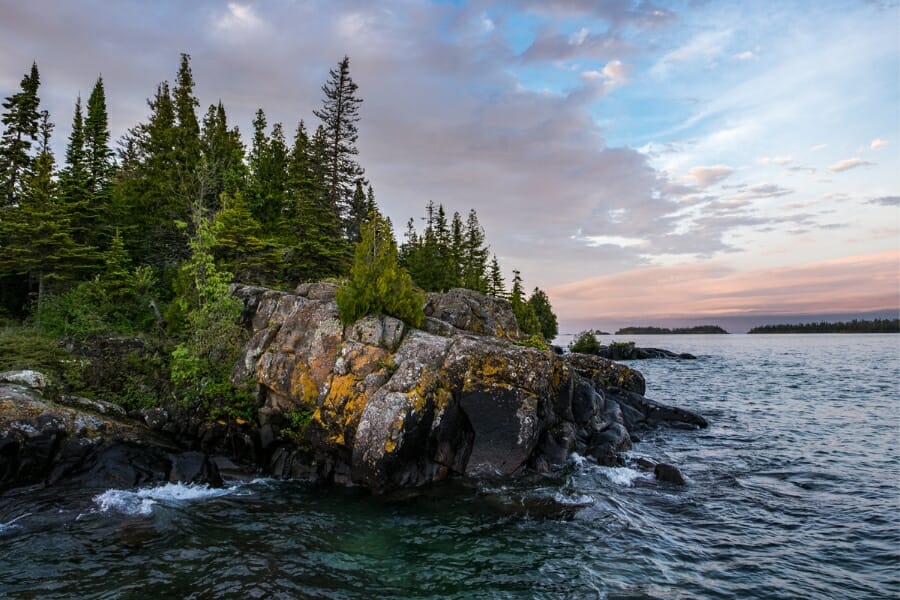
Isle Royale National Park is a wild area in the northwest corner of Lake Superior. It’s known for its rough terrain, dense forests, and many animals. This remote island paradise is a haven for people who love nature, and it’s also an exciting place to go agate hunting.
The island’s geology comprises old volcanic rocks like basalt and rhyolite that have been through critical geological changes for millions of years. Agates were able to form because of the way these volcanic rocks were made.
Where we found agates in the Isle Royale National Park
You can explore the rocky beaches of the park, especially those with abundant pebbles and gravel. Agates can be discovered among the stones with their characteristic patterns and colors.
The pounding waves and natural forces continually expose new agate deposits, making each visit to the island a unique opportunity for discovery.
McLain State Park
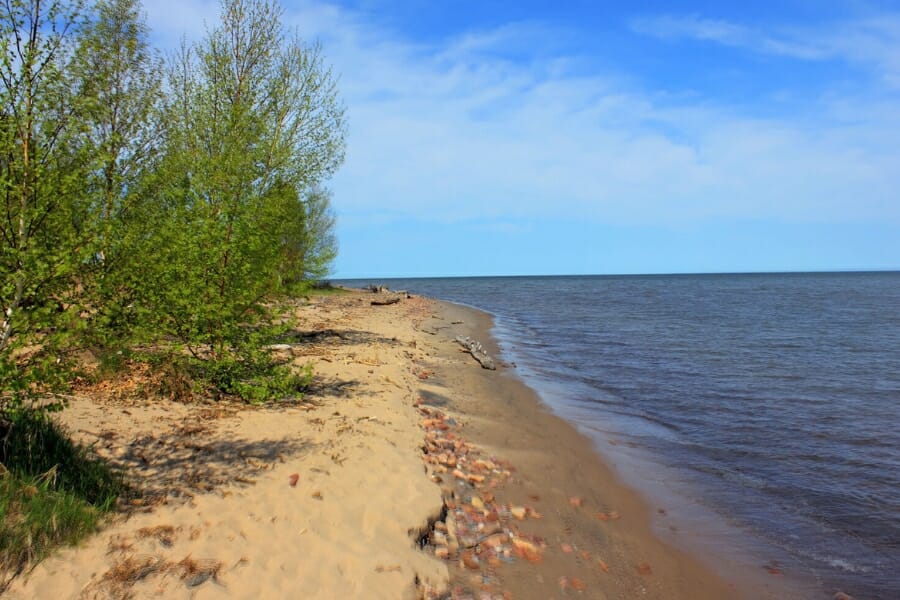
McLain State Park is a popular place to visit in Michigan’s Upper Peninsula. It’s on the shores of Lake Superior and is known for its sandy beaches, peaceful atmosphere, and beautiful views. In addition to being a beautiful place, the park is an excellent place to look for agates.
It’s a great place to look for agates because it has a unique mix of rock formations, wave action, and rock deposits. The park’s shoreline is a mix of sand, gravel, and pebbles, making it easy to find agates.
Where we found agates in McLain State Park
Exploring the park’s shoreline, especially areas with a higher concentration of rocks and pebbles is recommended to maximize your chances of finding agates in McLain State Park.
Pictured Rocks National Lakeshore
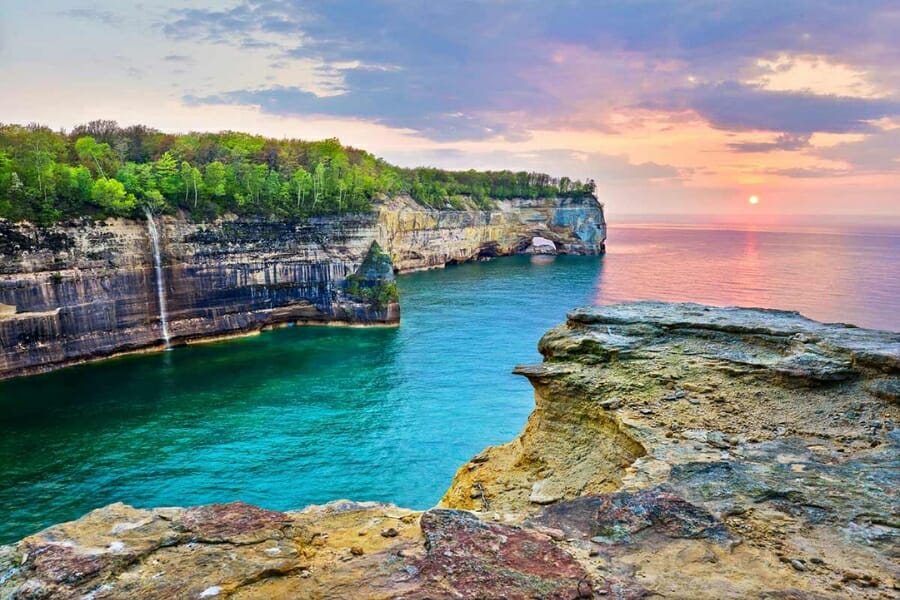
Pictured Rocks National Lakeshore is a breathtaking natural wonder known for its towering cliffs, colorful sandstone formations, and pristine beaches. This majestic shoreline not only offers stunning scenery but also provides an excellent location for agate hunting.
It’s important to note that while agates can be found in Pictured Rocks National Lakeshore, collecting is subject to park regulations. It would be best to familiarize yourself with guidelines or restrictions to preserve the park’s natural beauty and resources.
Where we found agates in Pictured Rocks National Lakeshore
You can explore the numerous sandy beaches and rocky shorelines, watching for agates. Walking along the coast and looking in the sand and gravel for agates, which often have bands and colors that are easy to spot, can lead to exciting finds.
Other Great Places To Find Agates in Michigan
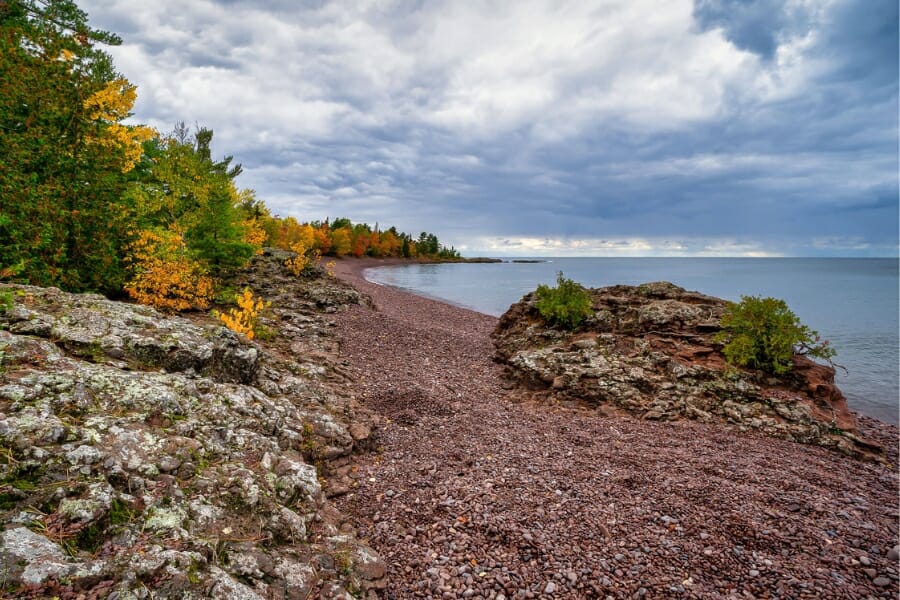
We’ll give you more ideas after we’ve mentioned the best places to look for agates in Michigan. To make things easier, we put them in order by county.
Our recommendations by county
| County | Location |
| Alexander | Area stream gravels |
| Alexander | Mississippi River |
| Gogebic | Black River Harbor Beach |
| Henry | Bishop Hill |
| Houghton | Tamarack Waterworks Beach |
| Houghton | Big Traverse Beach |
| Keweenaw | Agate Harbor |
| Keweenaw | Copper Harbor |
| Keweenaw | Five Mile Point |
| Keweenaw | Bete Gries Bay |
| Keweenaw | Black Creek |
| Keweenaw | Porter’s Island |
| Keweenaw | Carnelian Beach |
| Keweenaw | Siskiwit Bay |
| Keweenaw | High Rock Bay |
Additional areas you can find agates
Because Michigan is so vast, we want to ensure your search works. You have to look in these places where agates are often found.
Rivers and riverbanks
Rivers and riverbanks are highly sought-after locations for agate collectors due to the unique geological processes and natural forces at play. Agates are often found in these environments because rivers are natural channels for transporting rocks and minerals downstream.
As water erodes the surrounding land, it dislodges and carries rocks, including agates, downstream, where they eventually come to rest along the riverbanks. The constant movement and abrasion caused by the flowing water also expose fresh agates that were once buried or hidden within the riverbed.
Streams and creeks
Agate collectors highly favor streams and creeks as excellent locations to discover these captivating gemstones. These watercourses offer a range of advantageous factors for the presence and abundance of agates.
The flowing water in streams and creeks is a natural mechanism for transporting rocks and minerals, including agates, downstream. As the water erodes the surrounding land, it dislodges rocks and carries them along the stream.
Washes and ravines
Washes and ravines are favorable locations for agate collectors to uncover these alluring gemstones. These natural features offer a unique geological setting that contributes to the presence and abundance of agates.
Washes, also known as arroyos or dry riverbeds, and ravines, are characterized by their steep sides and the channels formed by the occasional water flow during rain events. When rainwater rushes through these channels, it dislodges and transports rocks and minerals, including agates, along its path.
Common Agate-Hunting Questions
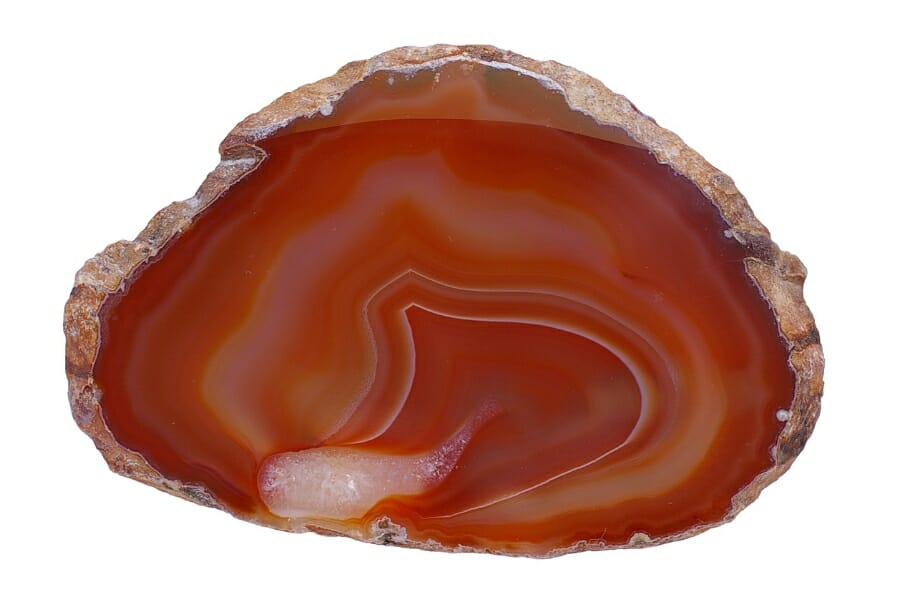
It’s important to know the answers to the following questions that people often ask about agates in Michigan
Is it illegal to collect agate in Michigan?
You can collect agates in Michigan as long as you follow the rules. It would be best if you abide by the regulations when you are in a public place. Make sure you have permission to go on private land before you do.
The Best Places To Buy Agates In Michigan

Not everyone enjoys spending all day outside looking for agates. Sometimes, all you need to complete your collection is a display or another beautiful agate specimen. Here’s where you can buy agate crystals in Michigan.
- Crystal Treasures – 92 W Walton Blvd, Pontiac, MI 48340
- Earth Lore – 895 Wing St, Plymouth, MI 48170
- Main Street Rocks and Crystal Shops – 300 W Main St, Durand, MI 48429
- Sisters of the Moon – 116 W Broad St, Linden, MI 48451
- World of Rocks – 32 N Huron St, Ypsilanti, MI 48197
If you have any recommendations for our list please leave a comment below!



